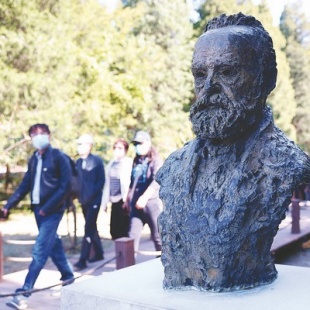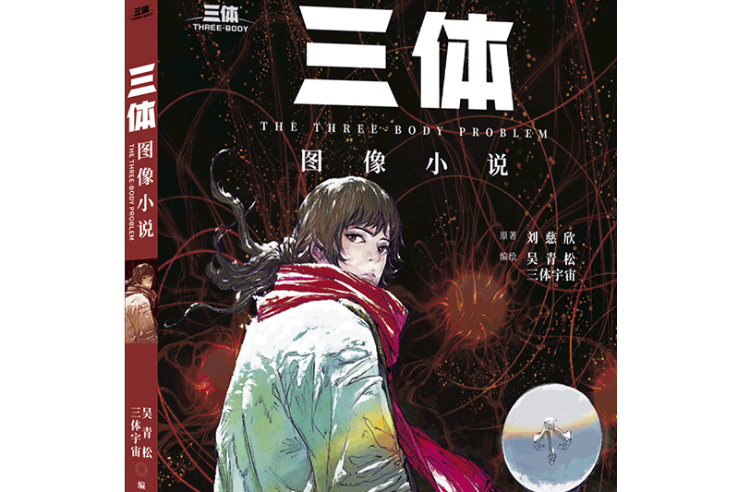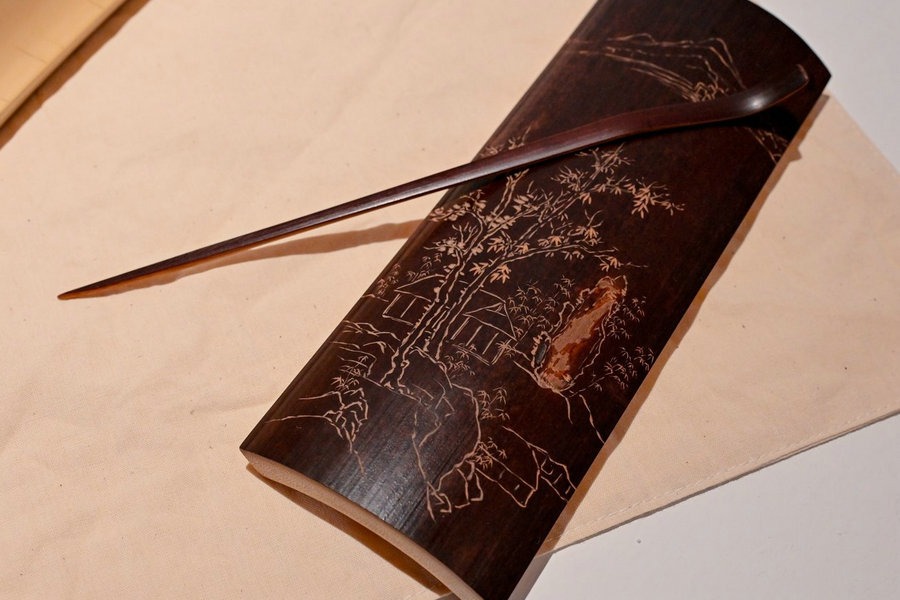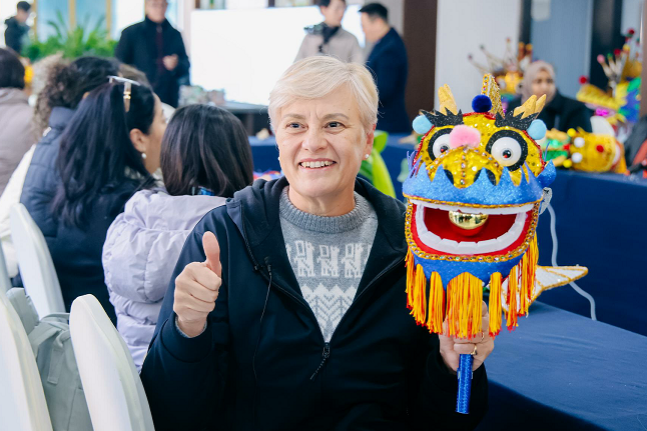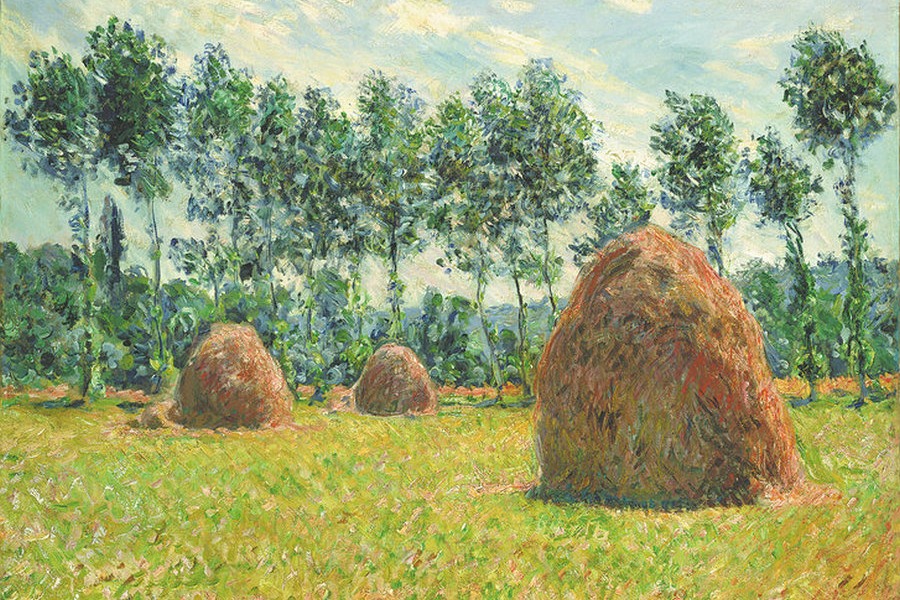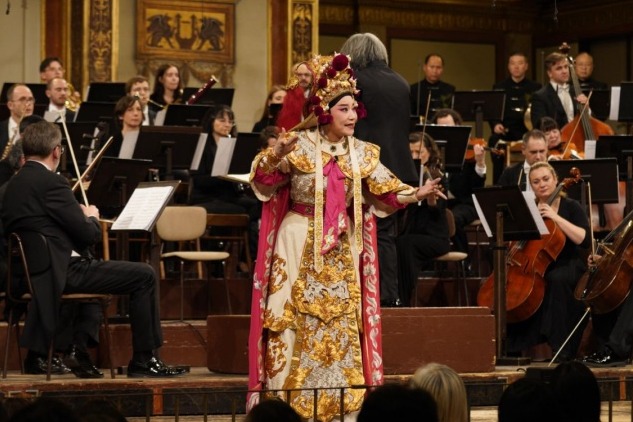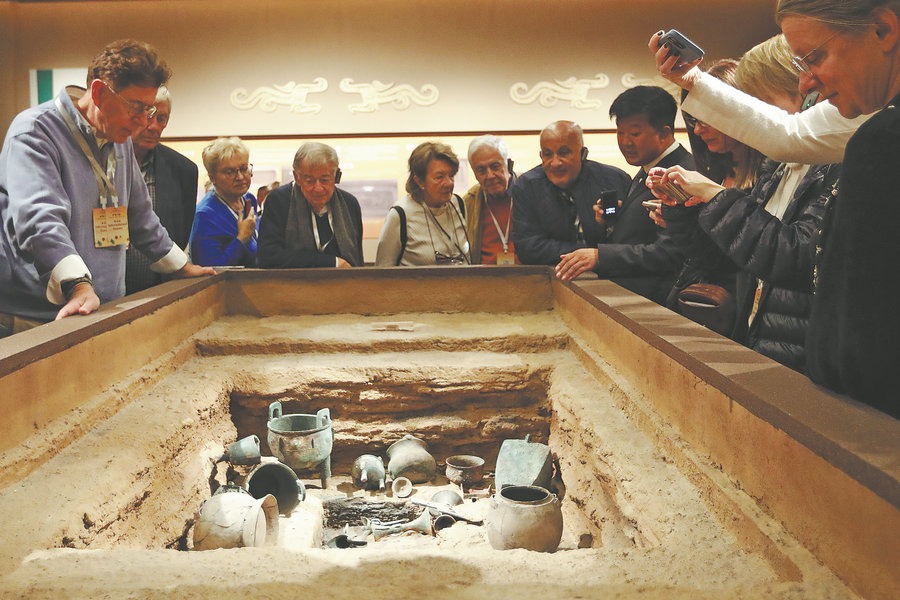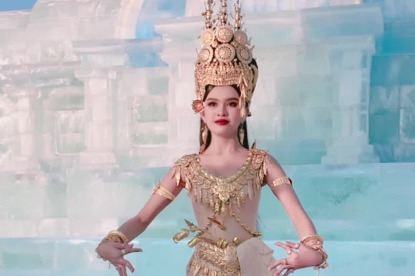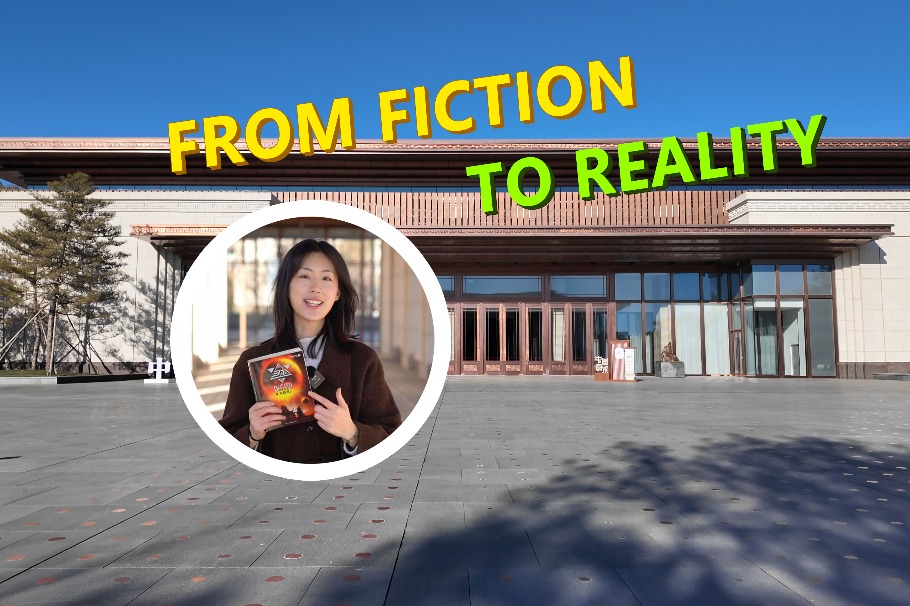More global visitors getting historical insight thanks to palace ruins

Wang used an English audio guide to help Joseph learn about the history of Yuanmingyuan. He later expressed shock at how the British army could have burned Yuanmingyuan so completely.
He says that while he was aware of Britain's history of invading many countries worldwide, this was the first time he learned of this British aggression against China.
Both Qin and Wang were in turn surprised by their European partners' lack of awareness of the historical event. Qin observes that when it comes to Eastern culture, the French tend to focus more on Japan and South Korea, and in terms of colonial history, they place more emphasis on Africa.
Wang also mentions that she felt British history textbooks might not give this part of history the attention it deserves.
"In Western countries, historical narratives are often dominated by the perspective of the West, which has, to some extent, created a 'shielding effect' toward China," Zhang Yiwu, a professor from Peking University, said in an interview with Chinese media.
The image of China in the international sphere can be complex: On the one hand, the success story of China's rise as the world's second-largest economy is often celebrated, but on the other hand the voices of many Western politicians and media criticizing China always seem to find an audience.
One root cause of foreign misperceptions about China is an incomplete and inadequate understanding of the country, according to observers.
Qin and Launay say that seeing the ruins of Yuanmingyuan and its artifacts displayed under glass cases for site visitors to view fueled their yearning for peace and the need for better understanding across cultures.
To better tell the story of Yuanmingyuan to foreign audiences, they also suggest adding multilingual navigation services and using virtual reality technology.
This is to allow more people to learn about this "hidden history", so that they can better understand its far-reaching impact, according to Qin and Launay. "Cherish peace and appreciate culture — this is progress," Launay says.
Duan Jichu contributed to this story.


